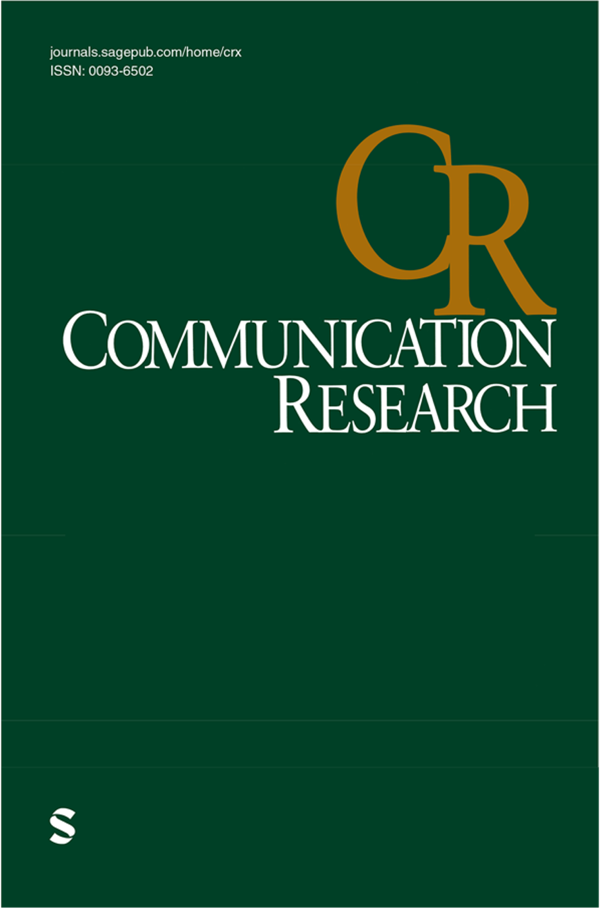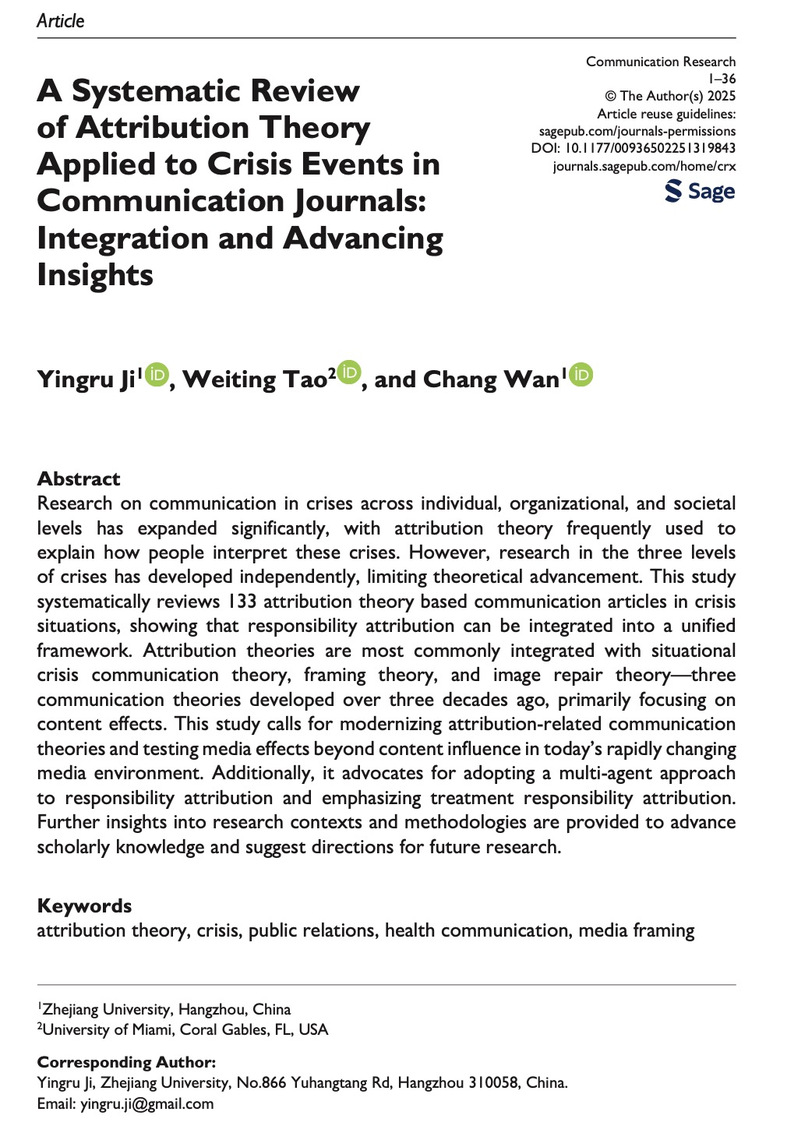Recently, a paper titled A Systematic Review of Attribution Theory Applied to Crisis Events in Communication Journals: Integration and Advancing Insights, co-authored by Ji Yingru, a researcher under our institute’s Hundred Talents Program, University of Miami Associate Professor Tao Weiting, and our institute’s doctoral candidate Wan Chang, has been officially published in Communication Research, a leading SSCI-indexed journal in communication studies. The paper is part of Ji Yingru’s forthcoming monograph Attribution Bias: The Psychology of Public Opinion in the Age of Social Media and presents key empirical findings.

The study highlights that while crisis communication research has yielded substantial insights across individual, organizational, and societal levels, existing work remains siloed within specialized domains such as health communication, public relations, and journalism studies. This fragmentation has hindered cross-disciplinary integration and theoretical innovation. To address this gap, the paper systematically reviews 133 attribution theory-based crisis communication studies and proposes an integrative framework for understanding responsibility attribution across the three levels. Key findings reveal that attribution theory is frequently combined with the Situational Crisis Communication Theory (SCCT), framing theory, and image repair theory. However, these theories originated over three decades ago, primarily focusing on media content effects, and urgently require modernization to align with today’s rapidly evolving media landscape.

Full-text download link:
https://journals.sagepub.com/eprint/UWUJXPNVM8JWZ5PTJINR/full

